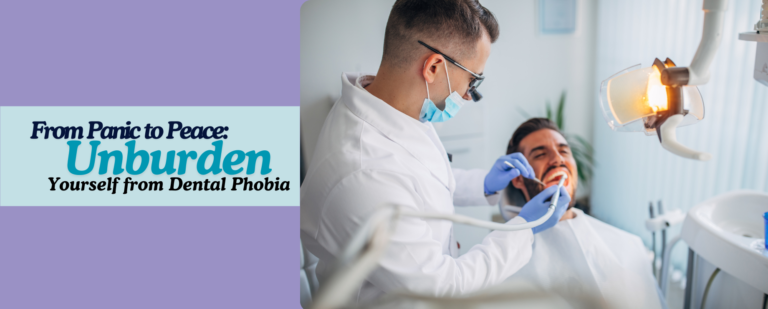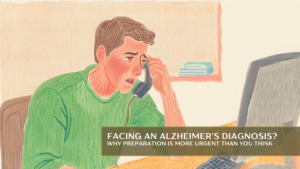Carla Francesca Gonçalves clutched the armrests of her car, her knuckles white with tension. The looming silhouette of the dental office cast an ominous shadow across the parking lot. Her heart raced, each beat a thunderous reminder of the impending appointment. She had postponed this moment for months, but the persistent ache in her molar had finally outweighed her paralyzing fear.
As she forced herself to exit the car, her legs trembled beneath her. The short walk to the entrance felt like an eternity, each step bringing her closer to her personal nightmare. The antiseptic smell hit her nostrils as soon as she opened the door, causing her stomach to lurch uncomfortably.
The waiting room buzzed with quiet conversation and the muffled sounds of dental equipment from behind closed doors. Carla’s eyes darted nervously around the room, taking in the too-cheerful posters about oral hygiene and the stack of outdated magazines. She signed in with shaking hands, her signature barely legible.
When the hygienist called her name, Carla felt as if she might faint. The walk to the examination room was a blur, and before she knew it, she was reclining in the dental chair, staring up at the harsh overhead light. As the dentist approached with a gleaming metal tool, Carla’s fear reached its peak. She closed her eyes tightly, wishing she could be anywhere else in the world.
Carla’s story is not unique. Millions of people around the world share her intense fear of dental visits. This phobia, while common, can have serious consequences for both individual health and society at large. Let’s explore the impact of dental anxiety and the promising solutions that can help people like Carla reclaim their oral health and peace of mind.
Understanding Dental Phobias
Dental phobias are more than just a simple dislike of the dentist. They are deep-seated fears that can stem from various sources:
These fears can manifest in various ways, from mild anxiety to full-blown panic attacks. Some common symptoms include:
- Difficulty sleeping the night before a dental appointment
- Increased heart rate and blood pressure at the thought of visiting the dentist
- Feeling physically ill when in a dental office
- Crying or feeling overwhelmed when thinking about dental procedures
The impact of dental phobias extends far beyond the dentist’s office. It can significantly affect overall health and well-being, leading to poor oral hygiene, chronic pain, and even social isolation due to embarrassment about dental issues.
The Cost of Dental Phobias
The consequences of avoiding dental care due to phobias can be severe and far-reaching. Let’s explore the various costs associated with this fear:
1. Physical Health Consequences
Neglecting dental health can lead to a cascade of physical problems:
- Tooth decay and gum disease: Without regular check-ups and cleanings, these issues can progress rapidly.
- Chronic pain: Untreated dental problems often result in persistent, debilitating pain.
- Systemic health issues: Poor oral health has been linked to cardiovascular disease, diabetes, and respiratory infections.
- Nutritional deficiencies: Dental pain can make it difficult to eat a balanced diet, leading to malnutrition.
2. Financial Burden
Ironically, avoiding the dentist due to fear often leads to higher financial costs in the long run:
- Emergency treatments: Neglected dental issues often culminate in painful emergencies requiring costly procedures.
- Complex procedures: What might have been a simple filling can evolve into the need for root canals, crowns, or even extractions.
- Lost work time: Dental emergencies and extensive treatments often require time off work, resulting in lost wages.
3. Emotional and Social Impact
The effects of dental phobias extend beyond physical health:
- Low self-esteem: Poor dental health can significantly impact one’s confidence and self-image.
- Social anxiety: Many people with dental issues avoid social situations due to embarrassment about their teeth.
- Chronic stress: The constant worry about dental health can lead to ongoing anxiety and stress.
4. Quality of Life
Dental phobias can have a profound impact on overall quality of life:
- Difficulty enjoying meals: Dental pain or missing teeth can make eating a chore rather than a pleasure.
- Sleep disturbances: Dental pain or anxiety about dental issues can lead to insomnia.
- Limited career opportunities: In some cases, poor dental health can affect job prospects, especially in customer-facing roles.
Breaking the Cycle: Overcoming Dental Phobias
While the costs of dental phobias are significant, there is hope. Many effective strategies can help individuals overcome their fears and reclaim their dental health:
1. Hypnotherapy
Hypnotherapy has shown promising results in treating dental phobias. It works by:
- Accessing the subconscious mind to reframe negative associations
- Teaching self-hypnosis techniques for relaxation
- Building confidence in managing dental visits
- Bringing clients to an anesthetic or analgesic state.
Hypnodontics is a variety of hypnotic processes that can help those undergoing dental surgeries and procedures to get into a state of analgesia or anesthesia but without using any pharmacologics or medications. This is a great option for kids, teens, and adults who are allergic to or are known to have a bad reaction with the medications applied in sedation dentistry.
2. Cognitive Behavioral Therapy (CBT)
CBT is a type of psychotherapy that can help individuals identify and change negative thought patterns related to dental visits. It often involves:
- Gradual exposure to dental situations
- Learning relaxation techniques
- Developing coping strategies
3. Sedation Dentistry
For those with severe phobias, sedation dentistry offers a way to receive necessary treatment while minimizing anxiety:
- Options range from mild sedatives to general anesthesia
- Allows for complex procedures to be completed in fewer visits
- Can help build positive associations with dental care over time
Some adults and kids have serious allergies to sedatives and anesthesia and this option may not be viable options. The good news is that Hypnosis can and does deliver the similar if not the same effects but with zero pharmacologics. Therefore, Hypnosis for dental procedures can be a tremendous option for those who cannot or do not want to take sedatives or anesthesia.
4. Finding the Right Dentist
A compassionate, patient-centered dentist can make a world of difference:
- Look for dentists who specialize in treating anxious patients
- Ask about comfort measures like headphones, blankets, or aromatherapy
- Consider bringing a trusted friend or family member for support
- A dentist who is certified and trained in Hypnodontics or whom works with a Hypnotists that can facilitate Hypnosis during dental procedures is a powerful option! Ask your dentist if they work with a hypnotist or if they’d be willing to work with an outside hypnotist that you know and trust to help you through dental procedures with more ease.
The Role of Prevention
While overcoming dental phobias is crucial, prevention is equally important. Educating children and adults about proper oral hygiene and the importance of regular dental check-ups can help prevent phobias from developing in the first place.
Schools, community health programs, and dental practices can all play a role in demystifying dental care and promoting positive associations with oral health.
A Brighter Smile, A Brighter Future
Dental phobias may cast a long shadow, but they don’t have to define your future. By understanding the true costs of these fears and exploring the many options available for overcoming them, you can take the first step towards reclaiming your oral health and overall well-being.
Remember Carla, our anxious friend from the beginning? With the help of a compassionate dentist and a course of hypnotherapy, she was able to face her fears. Today, she maintains regular dental check-ups and even looks forward to showing off her healthy smile.
Your journey to overcoming dental phobias is one worth taking. With each small step, you move closer to a life free from dental anxiety – a life where you can smile with confidence, eat without pain, and face the dentist’s chair without fear. And with Hypnotherapy, you may find you can get through this all, with a bit more ease.
Don’t let dental phobias hold you back any longer. Reach out to a healthcare professional, explore your options, and take that crucial first step towards a healthier, happier you. Your future self – and your smile – will thank you.




